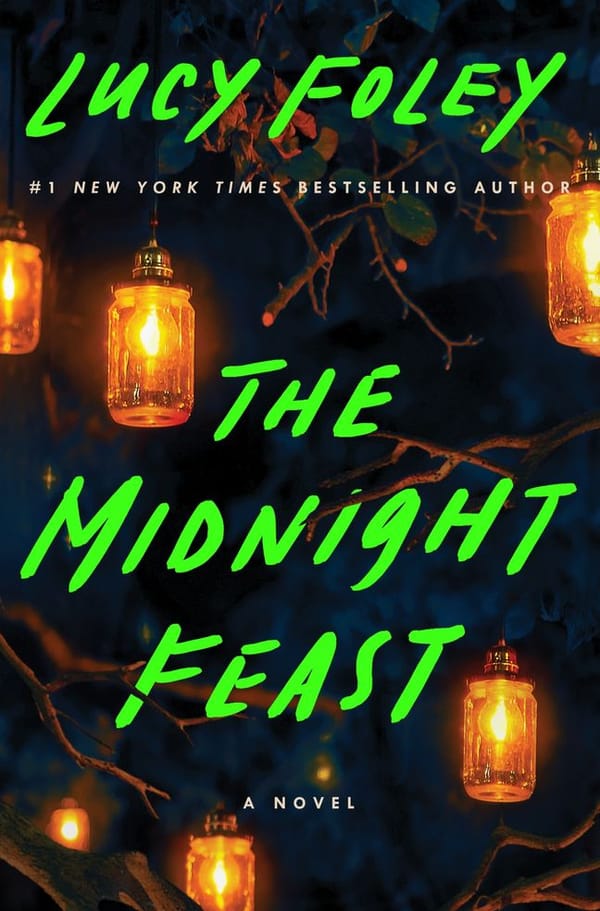Chapter 8: Frankenstein: The 1818 Text by Mary Wollstonecraft Shelley
We passed a few sad hours until eleven o’clock, when the trial was to commence. My father and the rest of the family being obliged to attend as witnesses, I accompanied them to the court. During the whole of this wretched mockery of justice I suffered living torture.

We passed a few sad hours until eleven o’clock, when the trial was to
commence. My father and the rest of the family being obliged to attend
as witnesses, I accompanied them to the court. During the whole of
this wretched mockery of justice I suffered living torture. It was to
be decided whether the result of my curiosity and lawless devices would
cause the death of two of my fellow beings: one a smiling babe full of
innocence and joy, the other far more dreadfully murdered, with every
aggravation of infamy that could make the murder memorable in horror.
Justine also was a girl of merit and possessed qualities which promised
to render her life happy; now all was to be obliterated in an
ignominious grave, and I the cause! A thousand times rather would I
have confessed myself guilty of the crime ascribed to Justine, but I
was absent when it was committed, and such a declaration would have
been considered as the ravings of a madman and would not have
exculpated her who suffered through me.
The appearance of Justine was calm. She was dressed in mourning, and
her countenance, always engaging, was rendered, by the solemnity of her
feelings, exquisitely beautiful. Yet she appeared confident in
innocence and did not tremble, although gazed on and execrated by
thousands, for all the kindness which her beauty might otherwise have
excited was obliterated in the minds of the spectators by the
imagination of the enormity she was supposed to have committed. She
was tranquil, yet her tranquillity was evidently constrained; and as
her confusion had before been adduced as a proof of her guilt, she
worked up her mind to an appearance of courage. When she entered the
court she threw her eyes round it and quickly discovered where we were
seated. A tear seemed to dim her eye when she saw us, but she quickly
recovered herself, and a look of sorrowful affection seemed to attest
her utter guiltlessness.
The trial began, and after the advocate against her had stated the
charge, several witnesses were called. Several strange facts combined
against her, which might have staggered anyone who had not such proof
of her innocence as I had. She had been out the whole of the night on
which the murder had been committed and towards morning had been
perceived by a market-woman not far from the spot where the body of the
murdered child had been afterwards found. The woman asked her what she
did there, but she looked very strangely and only returned a confused
and unintelligible answer. She returned to the house about eight
o’clock, and when one inquired where she had passed the night, she
replied that she had been looking for the child and demanded earnestly
if anything had been heard concerning him. When shown the body, she
fell into violent hysterics and kept her bed for several days. The
picture was then produced which the servant had found in her pocket;
and when Elizabeth, in a faltering voice, proved that it was the same
which, an hour before the child had been missed, she had placed round
his neck, a murmur of horror and indignation filled the court.
Justine was called on for her defence. As the trial had proceeded, her
countenance had altered. Surprise, horror, and misery were strongly
expressed. Sometimes she struggled with her tears, but when she was
desired to plead, she collected her powers and spoke in an audible
although variable voice.
“God knows,” she said, “how entirely I am innocent. But I
do not pretend that my protestations should acquit me; I rest my innocence
on a plain and simple explanation of the facts which have been adduced
against me, and I hope the character I have always borne will incline my
judges to a favourable interpretation where any circumstance appears
doubtful or suspicious.”
She then related that, by the permission of Elizabeth, she had passed
the evening of the night on which the murder had been committed at the
house of an aunt at Chêne, a village situated at about a league from
Geneva. On her return, at about nine o’clock, she met a man who asked
her if she had seen anything of the child who was lost. She was
alarmed by this account and passed several hours in looking for him,
when the gates of Geneva were shut, and she was forced to remain
several hours of the night in a barn belonging to a cottage, being
unwilling to call up the inhabitants, to whom she was well known. Most
of the night she spent here watching; towards morning she believed that
she slept for a few minutes; some steps disturbed her, and she awoke.
It was dawn, and she quitted her asylum, that she might again endeavour
to find my brother. If she had gone near the spot where his body lay,
it was without her knowledge. That she had been bewildered when
questioned by the market-woman was not surprising, since she had passed
a sleepless night and the fate of poor William was yet uncertain.
Concerning the picture she could give no account.
“I know,” continued the unhappy victim, “how heavily and
fatally this one circumstance weighs against me, but I have no power of
explaining it; and when I have expressed my utter ignorance, I am only left
to conjecture concerning the probabilities by which it might have been
placed in my pocket. But here also I am checked. I believe that I have no
enemy on earth, and none surely would have been so wicked as to destroy me
wantonly. Did the murderer place it there? I know of no opportunity
afforded him for so doing; or, if I had, why should he have stolen the
jewel, to part with it again so soon?
“I commit my cause to the justice of my judges, yet I see no room for
hope. I beg permission to have a few witnesses examined concerning my
character, and if their testimony shall not overweigh my supposed
guilt, I must be condemned, although I would pledge my salvation on my
innocence.”
Several witnesses were called who had known her for many years, and
they spoke well of her; but fear and hatred of the crime of which they
supposed her guilty rendered them timorous and unwilling to come
forward. Elizabeth saw even this last resource, her excellent
dispositions and irreproachable conduct, about to fail the accused,
when, although violently agitated, she desired permission to address
the court.
“I am,” said she, “the cousin of the unhappy child who
was murdered, or rather his sister, for I was educated by and have lived
with his parents ever since and even long before his birth. It may
therefore be judged indecent in me to come forward on this occasion, but
when I see a fellow creature about to perish through the cowardice of her
pretended friends, I wish to be allowed to speak, that I may say what I
know of her character. I am well acquainted with the accused. I have lived
in the same house with her, at one time for five and at another for nearly
two years. During all that period she appeared to me the most amiable and
benevolent of human creatures. She nursed Madame Frankenstein, my aunt, in
her last illness, with the greatest affection and care and afterwards
attended her own mother during a tedious illness, in a manner that excited
the admiration of all who knew her, after which she again lived in my
uncle’s house, where she was beloved by all the family. She was
warmly attached to the child who is now dead and acted towards him like a
most affectionate mother. For my own part, I do not hesitate to say that,
notwithstanding all the evidence produced against her, I believe and rely
on her perfect innocence. She had no temptation for such an action; as to
the bauble on which the chief proof rests, if she had earnestly desired it,
I should have willingly given it to her, so much do I esteem and value
her.”
A murmur of approbation followed Elizabeth’s simple and powerful
appeal, but it was excited by her generous interference, and not in
favour of poor Justine, on whom the public indignation was turned with
renewed violence, charging her with the blackest ingratitude. She
herself wept as Elizabeth spoke, but she did not answer. My own
agitation and anguish was extreme during the whole trial. I believed
in her innocence; I knew it. Could the dæmon who had (I did not for a
minute doubt) murdered my brother also in his hellish sport have
betrayed the innocent to death and ignominy? I could not sustain the
horror of my situation, and when I perceived that the popular voice and
the countenances of the judges had already condemned my unhappy victim,
I rushed out of the court in agony. The tortures of the accused did
not equal mine; she was sustained by innocence, but the fangs of
remorse tore my bosom and would not forgo their hold.
I passed a night of unmingled wretchedness. In the morning I went to
the court; my lips and throat were parched. I dared not ask the fatal
question, but I was known, and the officer guessed the cause of my
visit. The ballots had been thrown; they were all black, and Justine
was condemned.
I cannot pretend to describe what I then felt. I had before
experienced sensations of horror, and I have endeavoured to bestow upon
them adequate expressions, but words cannot convey an idea of the
heart-sickening despair that I then endured. The person to whom I
addressed myself added that Justine had already confessed her guilt.
“That evidence,” he observed, “was hardly required in so glaring a
case, but I am glad of it, and, indeed, none of our judges like to
condemn a criminal upon circumstantial evidence, be it ever so
decisive.”
This was strange and unexpected intelligence; what could it mean? Had
my eyes deceived me? And was I really as mad as the whole world would
believe me to be if I disclosed the object of my suspicions? I
hastened to return home, and Elizabeth eagerly demanded the result.
“My cousin,” replied I, “it is decided as you may have expected; all
judges had rather that ten innocent should suffer than that one guilty
should escape. But she has confessed.”
This was a dire blow to poor Elizabeth, who had relied with firmness upon
Justine’s innocence. “Alas!” said she. “How shall I
ever again believe in human goodness? Justine, whom I loved and esteemed as
my sister, how could she put on those smiles of innocence only to betray?
Her mild eyes seemed incapable of any severity or guile, and yet she has
committed a murder.”
Soon after we heard that the poor victim had expressed a desire to see my
cousin. My father wished her not to go but said that he left it to her own
judgment and feelings to decide. “Yes,” said Elizabeth,
“I will go, although she is guilty; and you, Victor, shall accompany
me; I cannot go alone.” The idea of this visit was torture to me, yet
I could not refuse.
We entered the gloomy prison chamber and beheld Justine sitting on some
straw at the farther end; her hands were manacled, and her head rested on
her knees. She rose on seeing us enter, and when we were left alone with
her, she threw herself at the feet of Elizabeth, weeping bitterly. My
cousin wept also.
“Oh, Justine!” said she. “Why did you rob me of my last consolation?
I relied on your innocence, and although I was then very wretched, I
was not so miserable as I am now.”
“And do you also believe that I am so very, very wicked? Do you also
join with my enemies to crush me, to condemn me as a murderer?” Her
voice was suffocated with sobs.
“Rise, my poor girl,” said Elizabeth; “why do you kneel,
if you are innocent? I am not one of your enemies, I believed you
guiltless, notwithstanding every evidence, until I heard that you had
yourself declared your guilt. That report, you say, is false; and be
assured, dear Justine, that nothing can shake my confidence in you for a
moment, but your own confession.”
“I did confess, but I confessed a lie. I confessed, that I might
obtain absolution; but now that falsehood lies heavier at my heart than
all my other sins. The God of heaven forgive me! Ever since I was
condemned, my confessor has besieged me; he threatened and menaced,
until I almost began to think that I was the monster that he said I
was. He threatened excommunication and hell fire in my last moments if
I continued obdurate. Dear lady, I had none to support me; all looked
on me as a wretch doomed to ignominy and perdition. What could I do?
In an evil hour I subscribed to a lie; and now only am I truly
miserable.”
She paused, weeping, and then continued, “I thought with horror, my
sweet lady, that you should believe your Justine, whom your blessed
aunt had so highly honoured, and whom you loved, was a creature capable
of a crime which none but the devil himself could have perpetrated.
Dear William! dearest blessed child! I soon shall see you again in
heaven, where we shall all be happy; and that consoles me, going as I
am to suffer ignominy and death.”
“Oh, Justine! Forgive me for having for one moment distrusted you.
Why did you confess? But do not mourn, dear girl. Do not fear. I
will proclaim, I will prove your innocence. I will melt the stony
hearts of your enemies by my tears and prayers. You shall not die!
You, my playfellow, my companion, my sister, perish on the scaffold!
No! No! I never could survive so horrible a misfortune.”
Justine shook her head mournfully. “I do not fear to die,” she said;
“that pang is past. God raises my weakness and gives me courage to
endure the worst. I leave a sad and bitter world; and if you remember
me and think of me as of one unjustly condemned, I am resigned to the
fate awaiting me. Learn from me, dear lady, to submit in patience to
the will of heaven!”
During this conversation I had retired to a corner of the prison room,
where I could conceal the horrid anguish that possessed me. Despair!
Who dared talk of that? The poor victim, who on the morrow was to pass
the awful boundary between life and death, felt not, as I did, such
deep and bitter agony. I gnashed my teeth and ground them together,
uttering a groan that came from my inmost soul. Justine started. When
she saw who it was, she approached me and said, “Dear sir, you are very
kind to visit me; you, I hope, do not believe that I am guilty?”
I could not answer. “No, Justine,” said Elizabeth; “he is more
convinced of your innocence than I was, for even when he heard that you
had confessed, he did not credit it.”
“I truly thank him. In these last moments I feel the sincerest
gratitude towards those who think of me with kindness. How sweet is
the affection of others to such a wretch as I am! It removes more than
half my misfortune, and I feel as if I could die in peace now that my
innocence is acknowledged by you, dear lady, and your cousin.”
Thus the poor sufferer tried to comfort others and herself. She indeed
gained the resignation she desired. But I, the true murderer, felt the
never-dying worm alive in my bosom, which allowed of no hope or
consolation. Elizabeth also wept and was unhappy, but hers also was
the misery of innocence, which, like a cloud that passes over the fair
moon, for a while hides but cannot tarnish its brightness. Anguish and
despair had penetrated into the core of my heart; I bore a hell within
me which nothing could extinguish. We stayed several hours with
Justine, and it was with great difficulty that Elizabeth could tear
herself away. “I wish,” cried she, “that I were to die with you; I
cannot live in this world of misery.”
Justine assumed an air of cheerfulness, while she with difficulty
repressed her bitter tears. She embraced Elizabeth and said in a voice
of half-suppressed emotion, “Farewell, sweet lady, dearest Elizabeth,
my beloved and only friend; may heaven, in its bounty, bless and
preserve you; may this be the last misfortune that you will ever
suffer! Live, and be happy, and make others so.”
And on the morrow Justine died. Elizabeth’s heart-rending eloquence
failed to move the judges from their settled conviction in the
criminality of the saintly sufferer. My passionate and indignant
appeals were lost upon them. And when I received their cold answers
and heard the harsh, unfeeling reasoning of these men, my purposed
avowal died away on my lips. Thus I might proclaim myself a madman,
but not revoke the sentence passed upon my wretched victim. She
perished on the scaffold as a murderess!
From the tortures of my own heart, I turned to contemplate the deep and
voiceless grief of my Elizabeth. This also was my doing! And my
father’s woe, and the desolation of that late so smiling home all was
the work of my thrice-accursed hands! Ye weep, unhappy ones, but these
are not your last tears! Again shall you raise the funeral wail, and
the sound of your lamentations shall again and again be heard!
Frankenstein, your son, your kinsman, your early, much-loved friend; he
who would spend each vital drop of blood for your sakes, who has no
thought nor sense of joy except as it is mirrored also in your dear
countenances, who would fill the air with blessings and spend his life
in serving you—he bids you weep, to shed countless tears; happy beyond
his hopes, if thus inexorable fate be satisfied, and if the destruction
pause before the peace of the grave have succeeded to your sad torments!
Thus spoke my prophetic soul, as, torn by remorse, horror, and despair,
I beheld those I loved spend vain sorrow upon the graves of William and
Justine, the first hapless victims to my unhallowed arts.





